| Some Things Plato Can Do |
| Here are a few of the things Plato can do. A computer application should do something, right? (Something hopefully useful or at least amusing.) Click on one of the screen shots to the right for more information about a topic. |
| |
| Keep Lists |
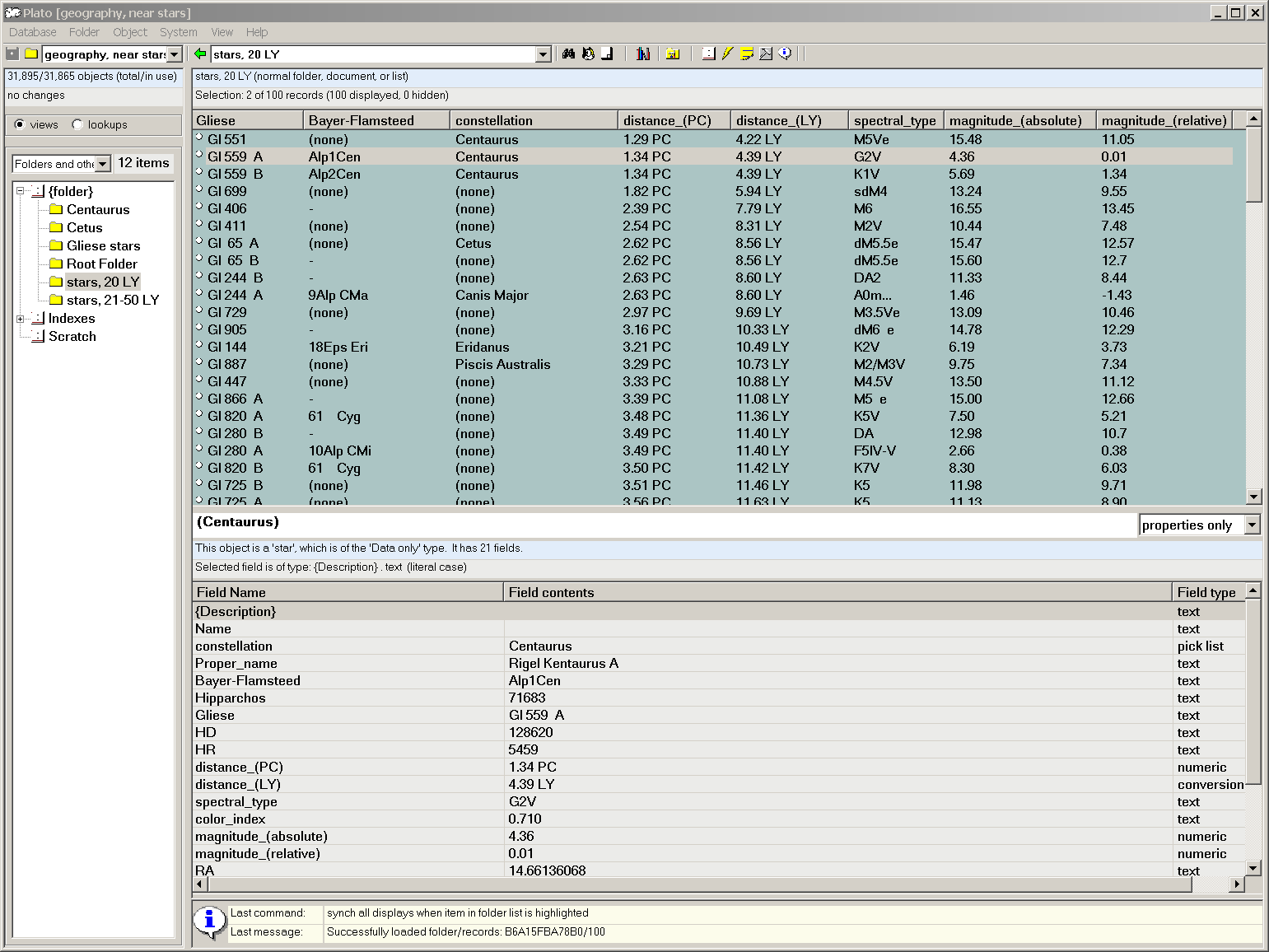
|
| from the simple (a list for Santa Claus perhaps), to the very complex (a library catalog, a photographic inventory, or a geodatabase). Plato also has special features for managing task lists. |
| |
| Manage Things |
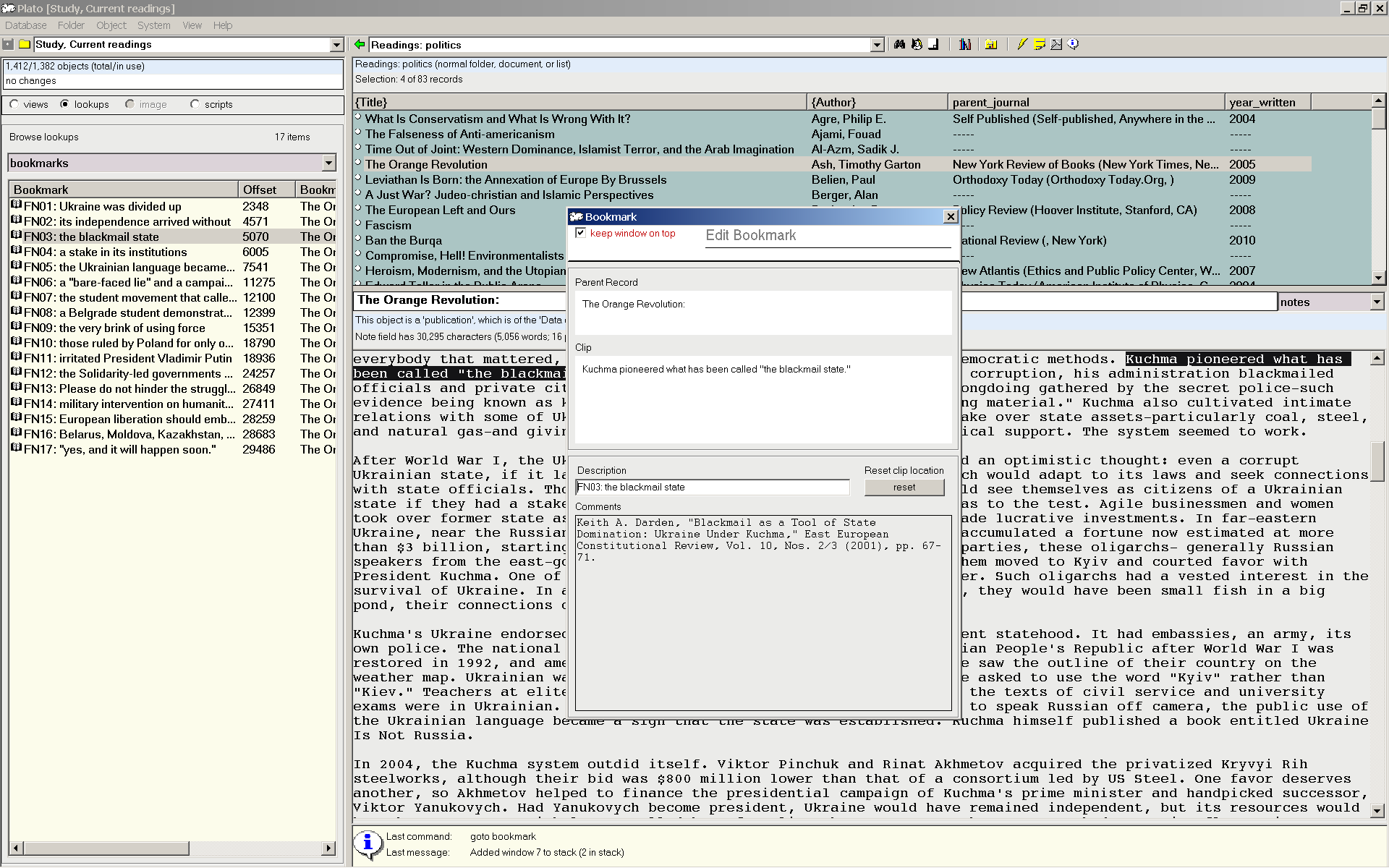
|
| that you or others write (scattered or structured notes, daily journals, correspondence, web clips, articles, novels, research, scientific treatises, or just about anything else). Manage your projects, ideas for projects, notes, and documents (of any sort--drawings, reports, memos, poems, novels...). Catalog your phone numbers and addresses, books and articles, photography and print collections, or research notes. |
| |
| Classify Your Information |
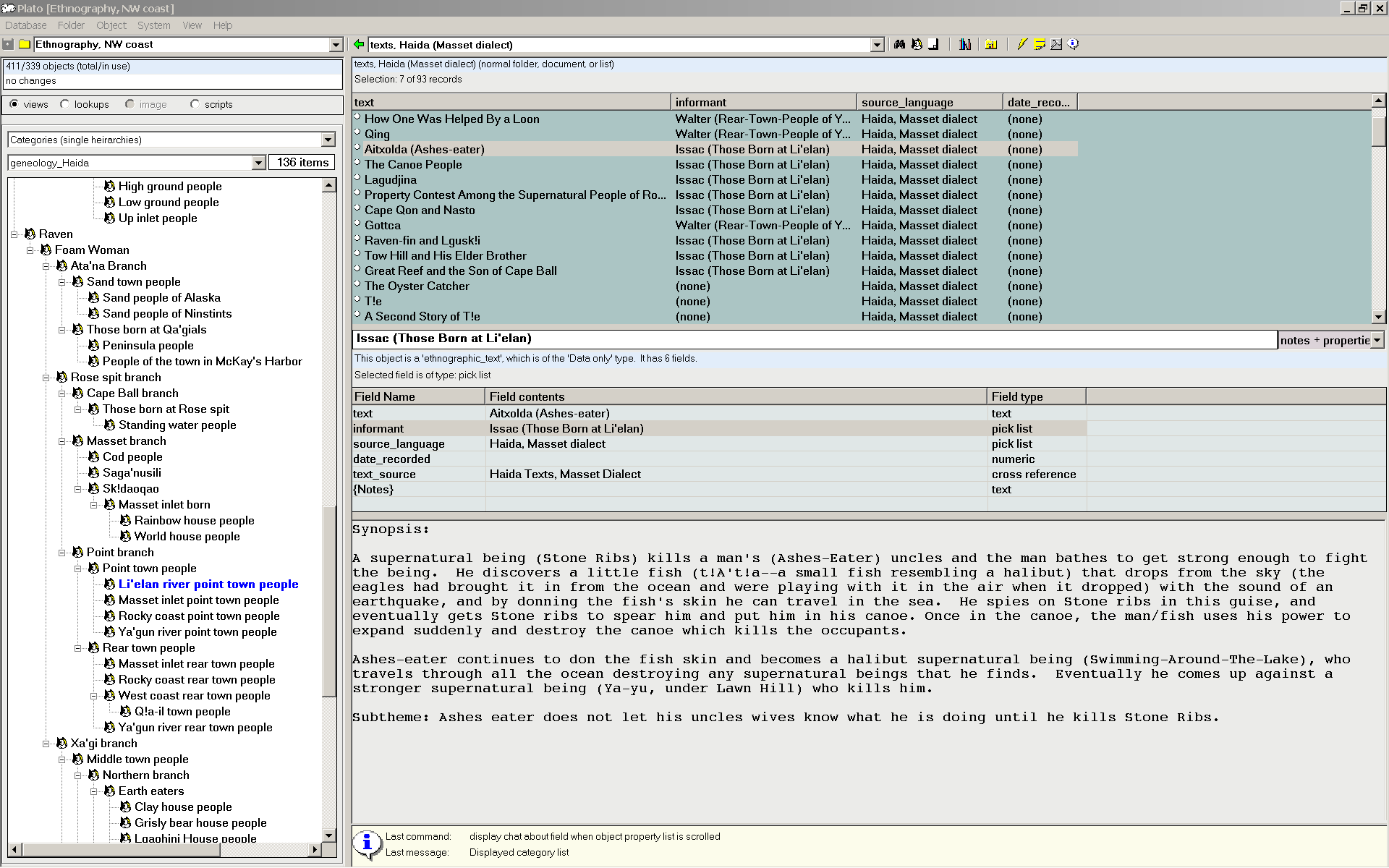
|
| using virtually any classification system you can adopt or invent. |
| |
| Show Relationships Between Things |
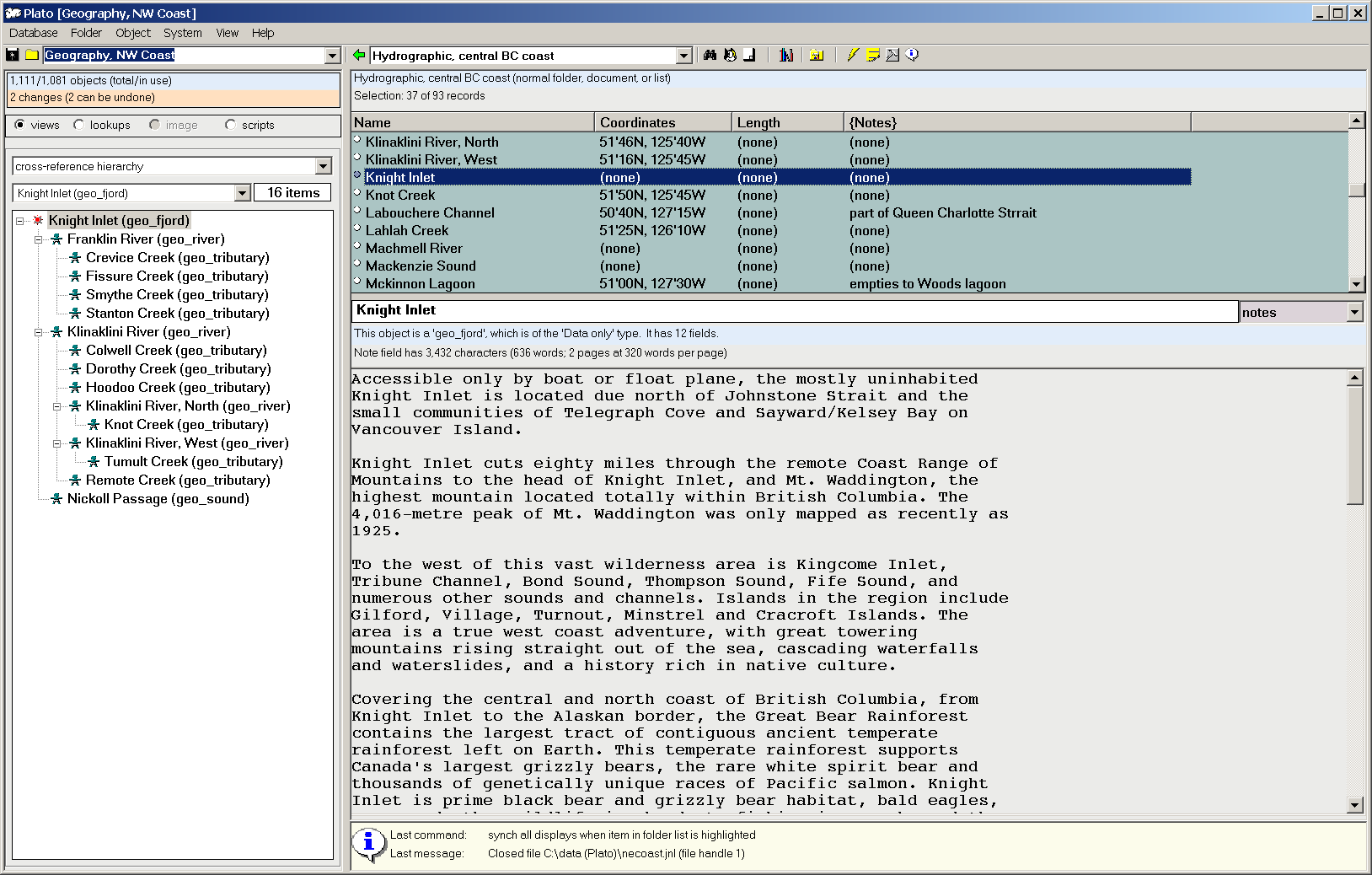
|
| from simple one-to-one relations to complex maps with thousands of interrelations. Navigate interactively through these relations with your mouse, with the ability to access and edit underlying data at any point. |
| |
| Logically Extend Your Databases |
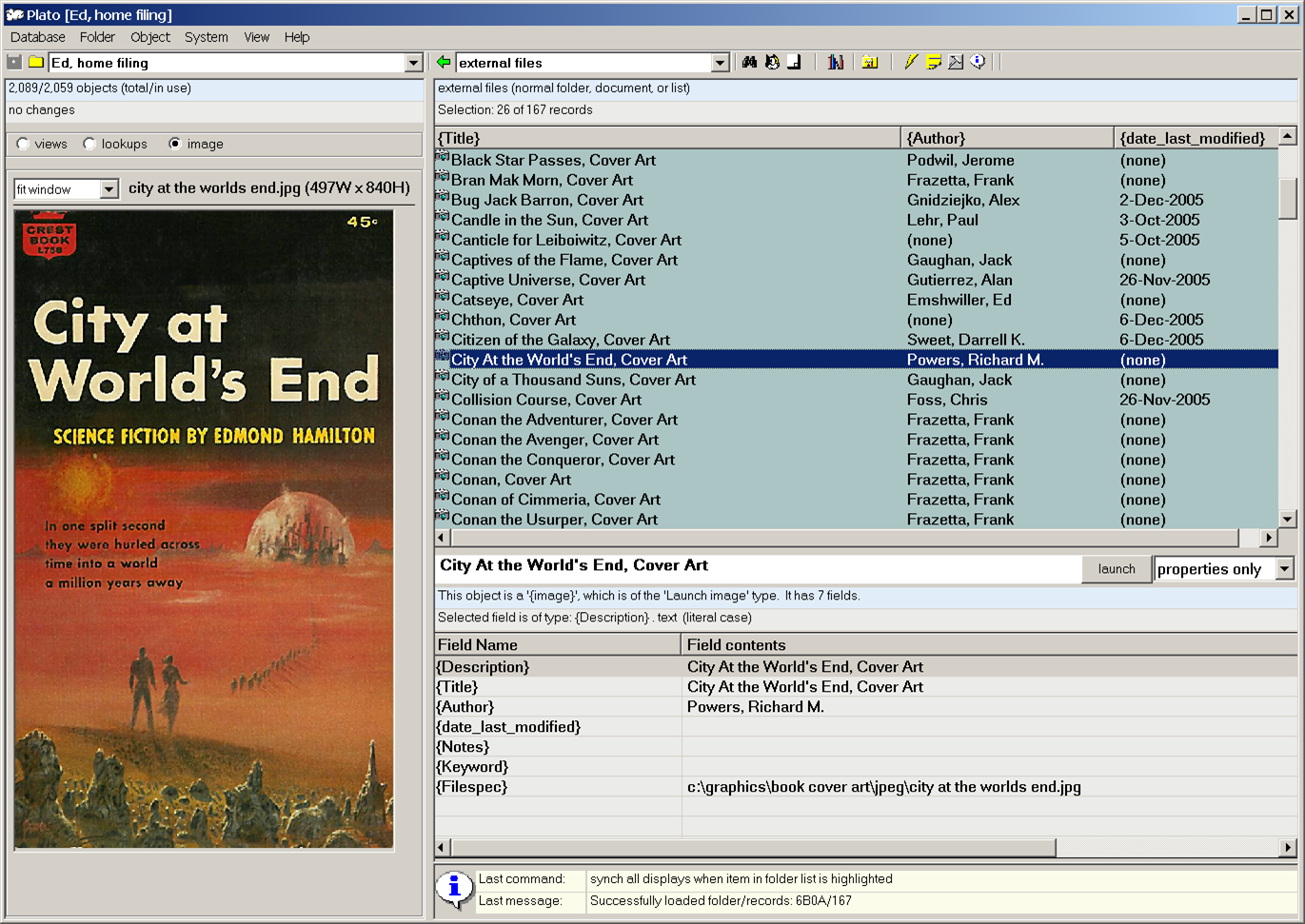
|
| to include objects outside to the computer environment such as paper in filing cabinets, books, records, sheet music, photographs, etcetera. |
| |
| Work Hand in Hand |
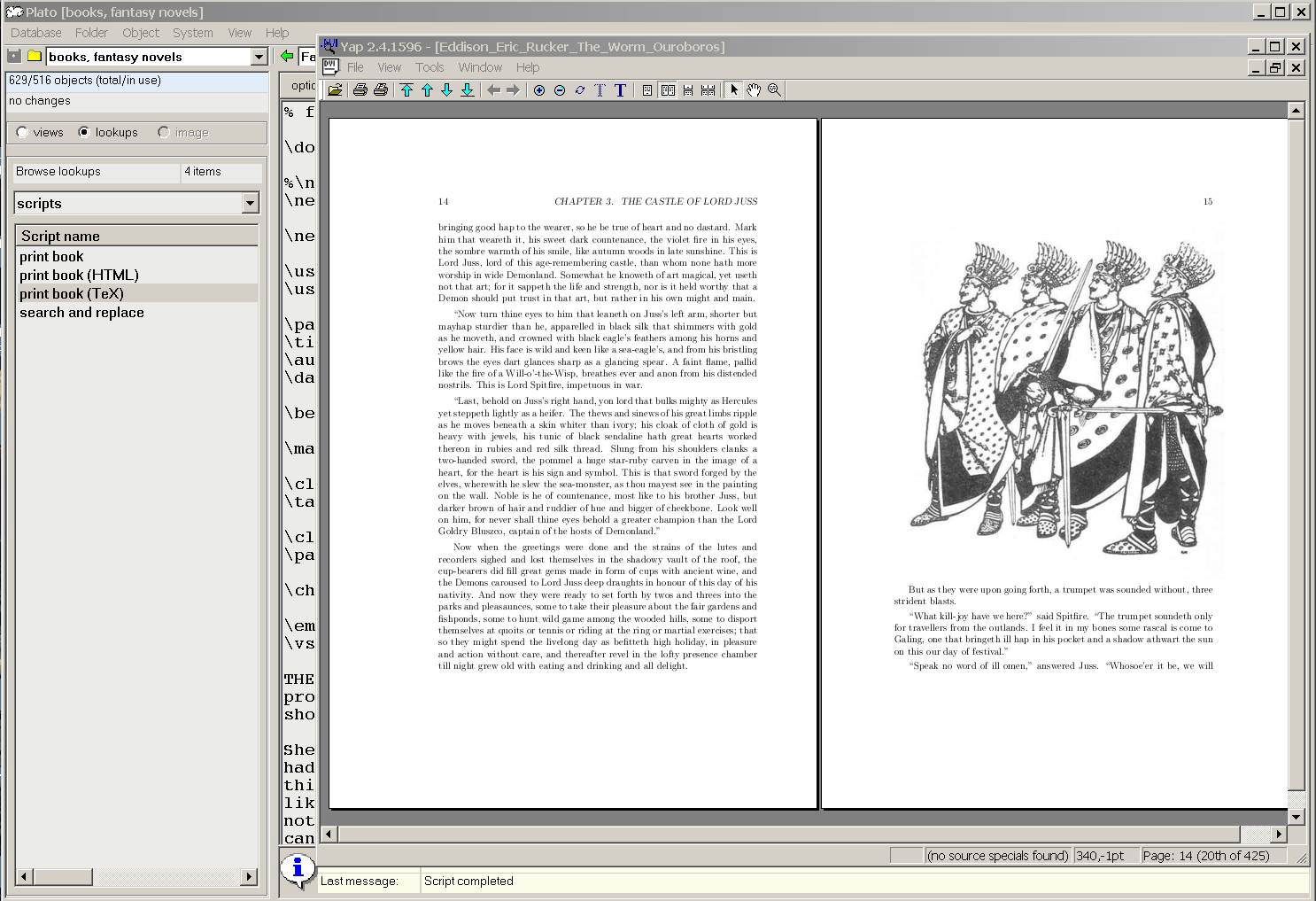
|
with other applications via markup to:
- Create RTF documents for use Microsoft Word and other word processors
- Create XML documents for use in Microsoft Excel
- Create TeX/LaTeX documents and BibTeX bibliographies for reports, journal submissions, and textbooks
- Create dot language cross reference maps and display them with GraphViz.
|
| |
| Create New Data Structures |

|
| on the fly, in Plato's class libraries. Plato allows supreme control over your metadata. |
| |
|
|

